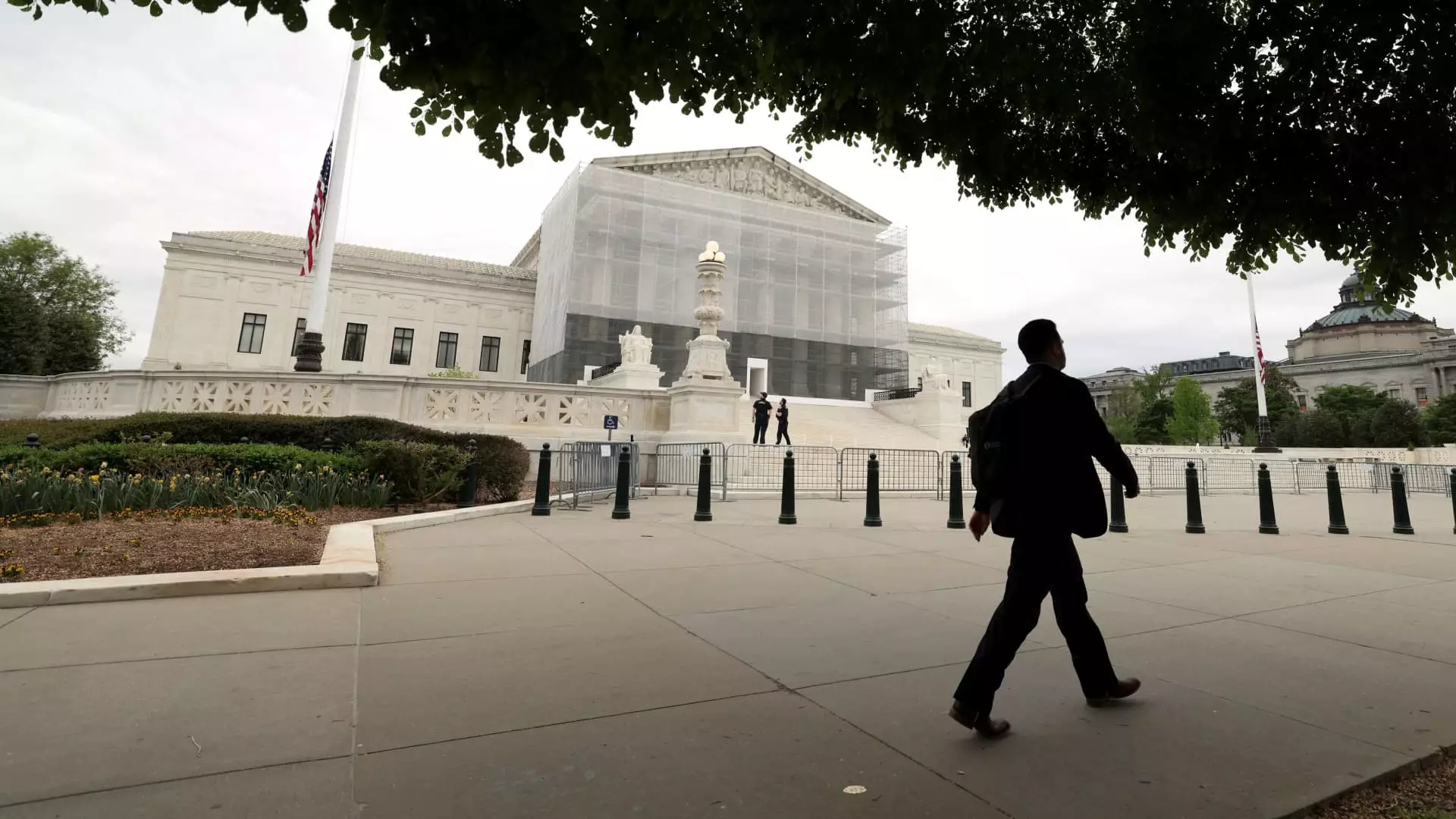In a striking decision last Friday, the Supreme Court has brought into question the previously unquestioned authority held by the Trump administration over immigration policies, particularly regarding the controversial Alien Enemies Act (AEA). The ruling, which halted the deportation of Venezuelan nationals at risk of being removed without proper representation or due process, signifies a rare moment of sanity in an increasingly chaotic immigration landscape. Coming down with a majority of 7-2, the Court has challenged the hastily constructed framework under which the Trump administration claimed to operate, shedding light on the appalling conditions faced by vulnerable individuals caught in the crosshairs of political maneuvering.
However, the ruling isn’t merely a victory; it stands as a profound indictment of an overreaching executive branch that views human lives as collateral damage in a misguided attempt to bolster national security. The court’s rebuke of the Trump administration serves as both a necessary balm for those impacted and a glaring reminder of the dangers posed when governance prioritizes expedience over empathy.
The Human Side of Injustice
As we dissect the implications of this ruling, it’s essential to consider the human dimension at play. The Venezuelan nationals who sought an injunction were confronted with a nightmarish reality: an unexpected removal notice just 24 hours before they were to be deported, stripped of adequate information or resources to contest their fate. This is not merely a procedural issue; it represents a gross violation of the fundamental rights owed to all individuals under the Constitution, regardless of their nationality.
What’s particularly alarming about the Court’s findings is the acknowledgment of the gravity dating back to the Trump administration’s allegations against these detainees. Claiming that Venezuelans are members of the Tren de Aragua gang, the government operates under an umbrella of broad assumptions and societal scapegoating. This type of blanket vilification turns entire communities into targets, allowing the administration to sidestep the nuanced realities many face. Yet the court had the foresight to recognize that due process cannot be sacrificed on the altar of national security.
The Dissenting Voices
Interestingly, Justices Samuel Alito and Clarence Thomas dissented from the majority opinion, suggesting that the danger of imminent removal was overstated. While dissent is a healthy component of a functioning judiciary, it raises issues about accountability and perspective within justices serving on the bench. Their reluctance to acknowledge the urgency faced by the detained Venezuelans invites scrutiny into the motivations behind such judgments. In a world often ruled by fear, can we afford to dismiss the human cost of swift legalese and bureaucratic maneuverings?
Alito’s dissent, in particular, positions itself as a critique of lower courts’ actions, yet it begs the question: what does it mean to wait for justice only to have uncertainties loom overhead? Given that the Justices, in their majority opinion, underscored the necessity of expediting such cases, the dissent arguably misses the very point of insistence on due process and timely justice.
The Broader Implications
While the immediate case focused on the Venezuelan detainees, the ramifications of this ruling extend far beyond this singular incident. The principles underlying the decision are foundational to the integrity of the judicial system that must endeavor to protect the rights of even the most marginalized. This ruling could serve as a catalyst for reexamining the parameters and applications of the Alien Enemies Act, traditionally a relic of another era.
In our current political climate marked by divisiveness and vitriol, this decision is a rare opportunity to reconcile the urgent needs of national security with our longstanding commitment to holding the sanctity of human rights paramount. If we continue to normalize unjust processes in the name of protective policies, we may someday find ourselves confronting far graver consequences—beyond those currently faced by those poor souls whose lives have been upended.
Thus, this ruling must not only be celebrated as a small triumph but recognized as a possible turning point in the ongoing battle between justice and fear. As our nation sifts through the fractured landscape of immigration reform, it’s evident that we must advocate for systems that genuinely uphold due process—rather than weaponizing it against those seeking refuge from tyranny.


Leave a Reply